The federal government issued the Elog mandate (also known as the electronic log mandate or the ELD Final Rule) to require drivers of commercial motor vehicles to use electronic logging devices (ELDs) to record driver and vehicle data. Since commercial drivers have a maximum amount of hours they can legally drive without taking a rest, the electronic logs are intended to more accurately track their hours of service and keep them safe on the road. In short, the electronic logbook mandate replaces paper logs of the past.
Electronic Log Compliance Timeline
As of Dec. 16, 2019, most commercial motor vehicles need to be equipped with an ELD, unless they meet the exemptions outlined later in this article. Following is a brief summary of the events that led up to this deadline.
- Feb. 16, 2016 – Enactment and Notice stating that past HOS recording practices would be replaced with the use of electronic logs.
- Dec. 18, 2017 – The date by which commercial motor vehicles had to start using a registered ELD or an approved AOBRD or EOBRD.
- Dec. 16, 2019 – Date by which commercial vehicles using an AOBRD or EOBRD had to replace them with an ELD.
Do you have any questions? Talk to ELD Advisor: 650-405-3372 or Request Callback
Who Must Comply with the Electronic Logbook Mandate?
Most drivers who are required to keep records of duty status (RODS) are required to use ELDs. The Federal Motor Carrier Safety Administration (FMCSA) estimates that amount to be 3.4 million drivers.
All carriers and drivers who can answer “Yes” to the following questions are required to keep RODS and, therefore, required to use ELDs:
- Drivers of vehicles that weigh over 10,000 lbs
- Drivers of vehicles with a gross vehicle weight (GVW) rating or gross combination weight (GCW) rating of over 10,000 lbs
- Drivers of vehicles designed/used to transport 16 passengers or more, including the driver, without being compensated for it
- Drivers of vehicles designed/used to transport 9 passengers or more, including the driver, with pay/compensation
- Drivers of vehicles that transport hazardous materials in a quantity that requires the use of placards
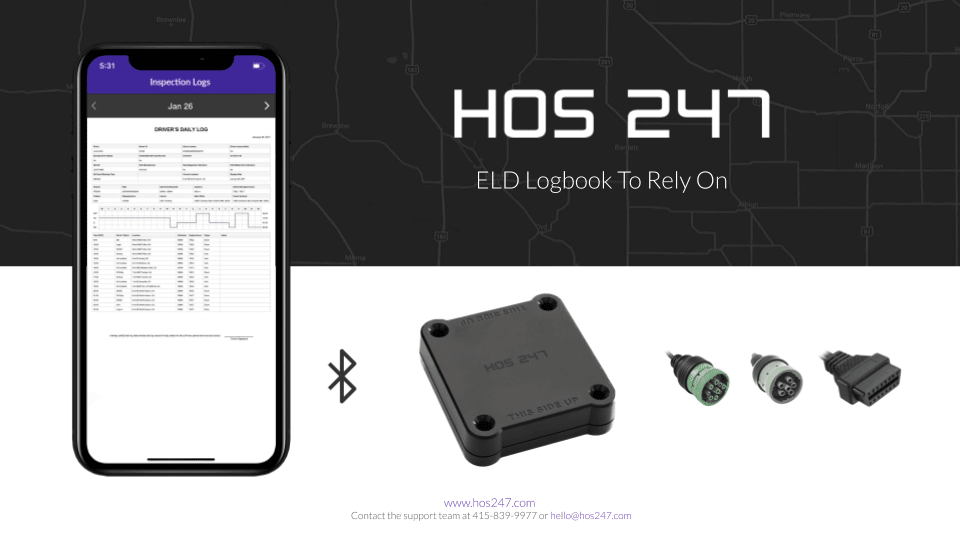
What Are the Electronic Logs Exemptions?
Drivers that meet the exemptions listed below, however, are not required to keep RODS/use electronic logs:
- Driver salespeople who don’t exceed 40 hours of driving time in any seven-day (consecutive) period
- Oilfield carriers that are focused on usage and transportation of oilfield equipment
- Short-haul CDL drivers operating within a 100 air-mile radius of their normal place of reporting
- Non-CDL drivers operating within a 150-air mile radius of their normal place of reporting
- Drivers of vehicles built before the year 2000
- Drive-away/tow-away operators delivering the vehicle being driven, as a commodity
- Drivers who use paper RODS for no more than eight days in a period of 30 days
Since time sheets still need to be kept, even if a driver meets any of the above exemptions, it is still smart to use an ELD not only for driver safety, but to gain valuable insight into how a fleet operates.
ELD Must Support HOS Exemptions
Another reason for using ELDs, regardless of whether the FMCSA requires it, is the fact that they support hours of service (HOS) exemptions. These exemptions include the 30-minute break exemption, 16-hour short-haul exemption, adverse driving conditions exemption and direct emergency assistance exemption.
30-minute Break Exception
The FMCSA’s 30-minute break rule states that if eight hours have passed since a driver’s last 30-minute break, a driver needs to stop driving. A driver can perform other tasks, however, but it isn’t safe for them to keep driving. However, there are two types of short-haul drivers exempt from this rule:
- Those who qualify for the 100 air-mile radius provision
- Those who operate non-CDL vehicles and qualify for the 150 air-mile radius provision
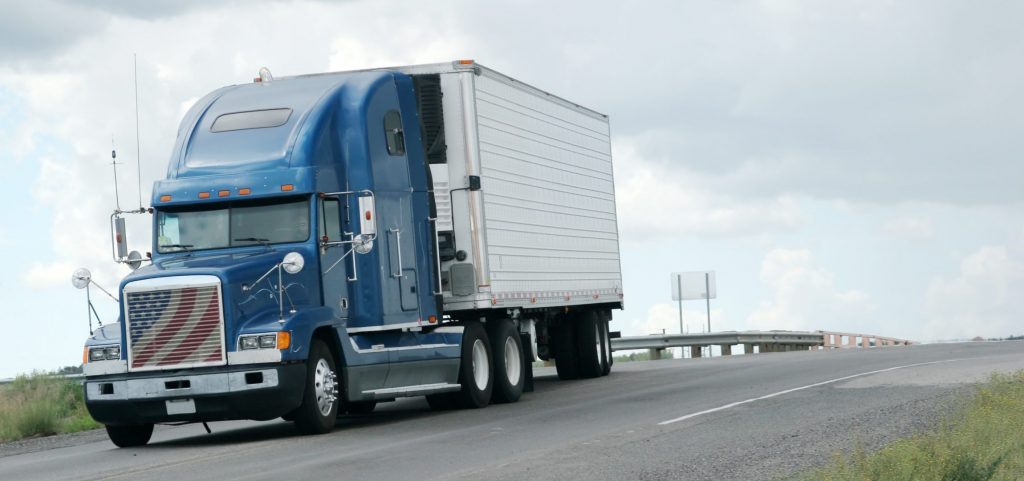
The 16-hour Short-haul Exemption
The 16-hour short-haul exemption is related to the 14-hour rule, which states that property-carrying drivers cannot drive past the 14th consecutive hour after first coming on duty. In addition, they can’t start driving again until they’ve spent 10 consecutive hours off-duty. The limit is 15 hours for passenger-carrying vehicles.
With the 16-hour short-haul exemption, qualifying property-carrying drivers can add two hours to their 14-hour driving window once every seven days (consecutive), if:
- They’ve returned to their usual work reporting location and have been released from duty at the same location for their previous five duty hours worked.
- They’ve returned to their normal work reporting location and have been released from duty within 16 hours after starting duty, but after 10 consecutive hours off duty.
- They driver hasn’t used this exemption within the past six consecutive days — with the exception of when they began a new seven or eight consecutive day period as allowed by §395.3(c).
A driver cannot use the non-CDL 150 air-mile exemption if they use the 16-hour short-haul exception.
Adverse Driving Conditions Exemption
Under the adverse driving conditions exemption, drivers can extend their maximum driving time by two hours when conditions couldn’t have been anticipated before the driver began driving. Examples include changes in weather, or road closures due to events that couldn’t be predicted, such as crashes. Rush hour traffic or forecasted weather conditions do not count toward this exemption, however.
- For property-carrying drivers, they can extend their typical 11-hour driving limit to 13 hours (within a 14-hour window).
- For passenger-carrying drivers, they can extend their typical 10-hour driving limit to 12 hours (within a 15-hour driving period).
Direct Emergency Assistance Exemption
The FMCSA may temporarily lift HOS rules in certain emergency situations. In other words, they can complete their driving shift without violating regulations as long as their shift could have reasonably been completed in absence of the emergency. The exemption is only applicable if it has officially been declared by a federal or local government entity, or the FMCSA.
Additional Information on the Elog Mandate
ELDs are simple to install and use, providing a carrier chooses the right company to partner with. There are a variety of companies that make ELDs, yet they can be very different in nature. While they might be installed in the vehicle in the same way, the apps, service and contract specifications can be quite different.
Choosing the Right ELD for Your Fleet
An ELD is typically easily installed by connecting it to the vehicle’s diagnostic port. But once it is installed, it has to be easily used by drivers. That involves making sure drivers can connect to the ELD with a reliable app and also be able to easily use the app. Complicating things more is that some ELD apps have minimal features, while others are more robust (with features like maintenance tracking and more). And when a driver or carrier has a question about how to use the ELD’s features, they want to be sure that they can contact support 7 days a week.
With the electronic logbook mandate came an onset of ELD companies that created subpar ELDs and offered subpar service. Their customers were locked into contracts that they couldn’t get out of. This illustrates the importance of choosing an ELD from an industry leader with experience and a reliable reputation.
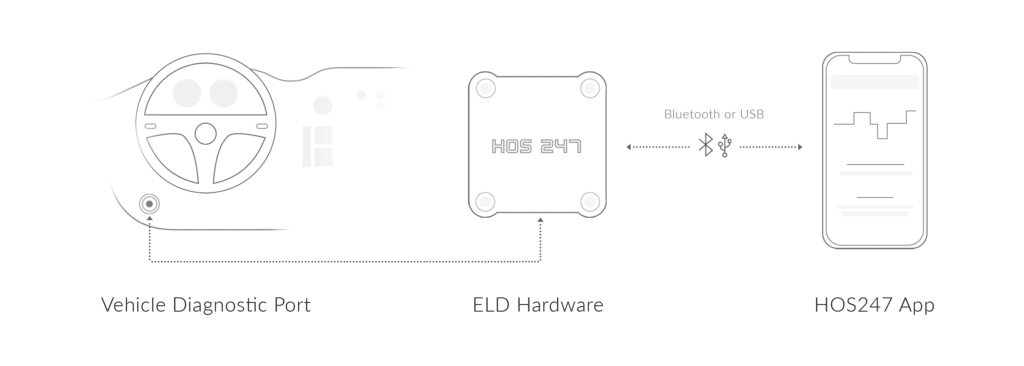
FMCSA-Compliant ELDs
Also illustrating the importance of due diligence when choosing an ELD is the fact that the FMCSA doesn’t certify them. Instead, manufacturers of ELDs are tasked with making sure they comply on their own. That leaves room for error and dishonesty. The FMCSA posts a list of ELDs that claim to meet the government guidelines, but it is important to note that they are self-certified and not endorsed by the FMCSA. That’s why carriers and drivers need to take some time to do their research and choose an ELD provider they trust.
Do you have any questions? Talk to ELD Advisor: 650-405-3372 or Request Callback
HOS247 is an Industry Leader Providing ELD Solutions
HOS247 has been following the ELD mandate since long before its inception. As an industry leader, HOS247 is familiar with the struggles that drivers and carriers face, and is able to deliver solutions to make drivers safer on the road and carriers productive. For fleets that use an HOS247 ELD, it isn’t just about complying with RODS or HOS regulations — it is about efficiency and productivity, contributing to a carrier’s bottom line. Here are just some benefits fleets and drivers see when using HOS ELD solutions:
- HOS247 doesn’t lock carriers into contracts. Instead, they grow with a fleet to accommodate its changing needs over time.
- HOS247 offers hassle-free two-week returns, allowing return of the device for any reason.
- To eliminate burdensome administrative time, HOS247 solutions offer IFTA mileage tracking, which is a major time saver for fleets.
- Accurate GPS tracking helps fleet managers know exactly where their vehicles and drivers are located when on duty.
- Dispatch features let dispatchers know who to assign a job to based on how close they are to a load and how many hours left they have available to drive.
- Flexible plan options allow drivers to use smartphones or tablets.
- Maintenance tracking ensures vehicles are well-cared for and lengthens their lifespan.
- The HOS247 app is driver-friendly, ensuring drivers don’t get frustrated with it and aren’t hesitant to use it.
- A multilingual support team is available 7 days a week and speaks English, Spanish, Polish and Russian.
- Seamless compliance ensures that fleets aren’t charged with DOT violations.

I’ve co-founded, built and managed several transportation-related businesses. Now, I’m a founder and CEO of HOS247 – an AI Transportation Platform for trucking companies, freight brokers and other logistics operations. We are transitioning old-style operations to technology-advanced logistics entities and help them to grow their businesses. ELDs (electronic logging devices), fleet tracking and management 2.0 combined with AI-powered dispatch tools.











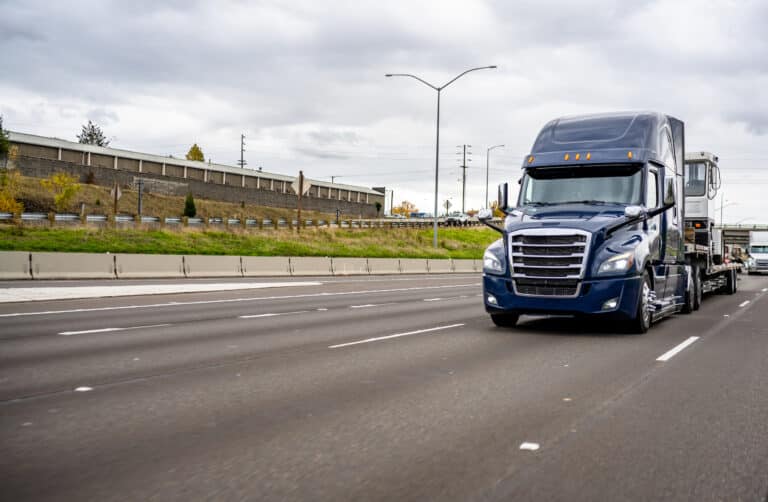
The FMCSA has developed a list for electronic logbook providers to register their logbook systems. Trucking professionals must choose from this ELD approved list. However, there are hundreds of options, so carriers should consider several factors before deciding which one
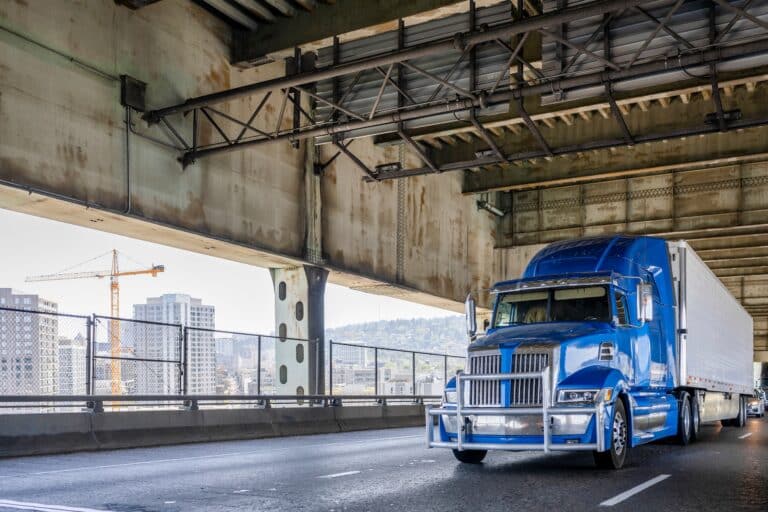
With the enforcement of the ELD mandate, truckers require electronic logbooks to demonstrate compliance with HOS regulations. While the need for a feature-loaded elog device is a priority, the long-standing debate on whether to choose an Android or iOS elog

VisTracks and HOS247 are two white-label ELD solutions that allow resellers to provide electronic logging devices to their customers under their own brand name. Both companies are on the Federal Motor Carrier Administration’s self-registration list and their apps … Read More